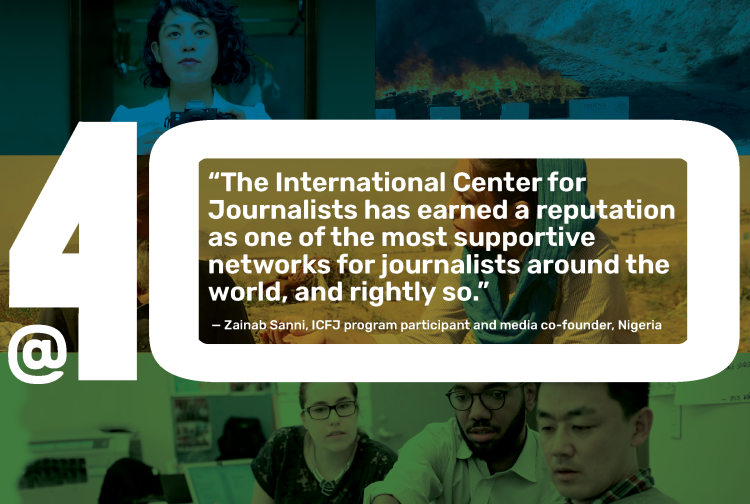In a big election year, journalists across the world are working to provide trustworthy coverage that helps us cut through harmful disinformation and make more informed choices. And ICFJ is on the front lines, equipping our global network to do their vital work.
In 2023:
- Our network grew to more than 177,000 journalists. This includes our core network of program participants over the past five years, as well as people who receive weekly resources from our International Journalists’ Network (IJNet), published in eight languages.
- We served more than 30,000 journalists with 68 programs in 95 countries. This included more than 3,650 hours of mentorship and 540 reporting and project grants.

In an increasingly AI-fueled world, the importance of reliable, trusted reporting is only growing. ICFJ in our 40th year has the network, track record, partners and supporters to deliver on our mission. As always, we thank our entire community for all that you have done and continue to do.
|